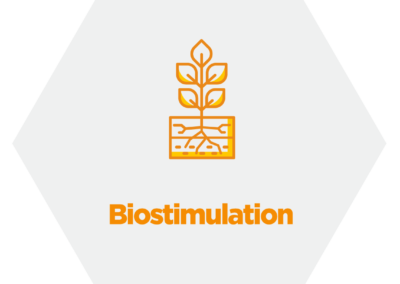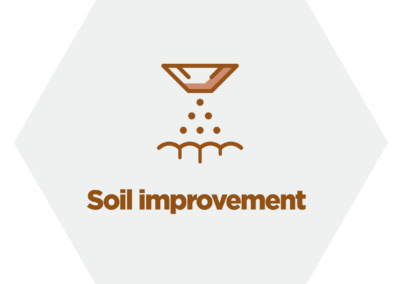
Adjuvant, adherent and agricultural dispersant for foliar application.
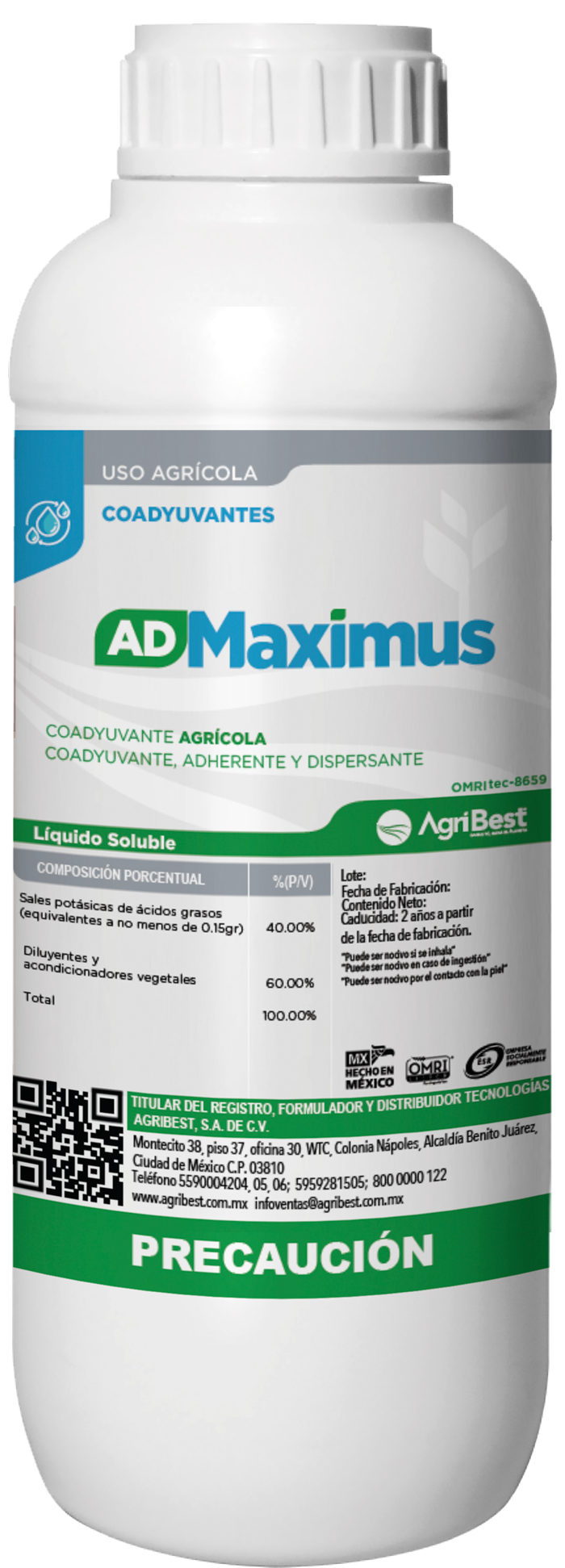
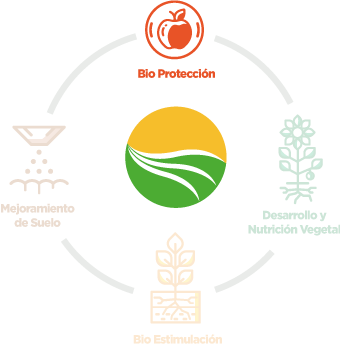
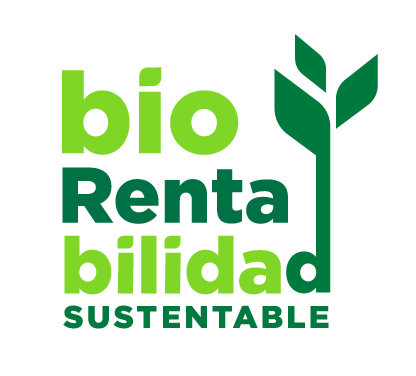
¿WHY USE?
By protecting crops from pests, the harvest is ensured and yields are increased by 5 to 15%. Harvest products will have higher quality and cleaner appearance. It will improve the effectiveness of biopesticides from 10 to 25% by covering more contact surface with insects where the product is applied.
BENEFITS
- Enhances Bioprotection products for insect control.
- It acts directly on larvae, dehydrating their cuticle.
- Generates greater adherence and prevents loss of product due to runoff.
- Increases leaf surface contact and reduces the expression of fungal and bacterial diseases.
- It is applied with fungicides, bactericides and insecticides.
¿WHAT IS IT?

It is an agricultural coadjuvant for foliar application, formulated from potassium salts of fatty acids, selectively saponified (linoleic acid, palmitic acid); it breaks the surface tension of water droplets, improves the coverage of pesticides, increasing their effectiveness. On the other hand, it has adherent qualities that increase the contact time of the pesticide on the leaf or on the pathogen, potentiating its effect.
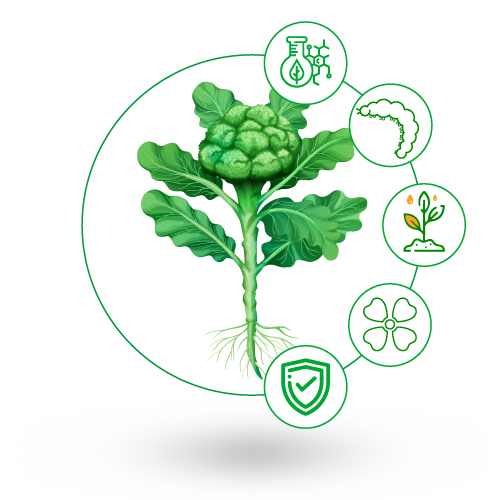
¿HOW DOES IT WORK?
Penetrating Power
It has structures in the form of micelles, formed by a hydrophilic part called head, because of its shape it mixes or dissolves in water and another hydrophobic part called tail, which is compatible with lipids, proteins and organic matter. When it comes in contact with the membrane of insects and phytopathogenic agents or in the cell wall of plants, it is compatible with lipid and protein layers so it can pass them faster and more efficiently than other compounds and molecules such as water. It can reach a deeper level of the cuticle, membrane or plant cells, there is even entry via stomata in plants and also move easily through the spiracles of soft-bodied insects causing suffocation and death. It helps the active molecules of the pesticides to penetrate more efficiently into the body of the insect and pathogenic microorganisms, because of the polarity of the hydrophobic part it moves more efficiently in the membranes, cuticle and epidermal cells translocating the molecules of the biopesticides to the interior of the layers of the cuticle or cell wall.

Cleaning Power
Soap micelles clean dirt in the following way, the hydrophobic tail end binds to grease and dirt in general by having an end polarity to this, they enter it inside the micelle, and in its outer part or head for being hydrophilic binds to the natural solvent which is water and water molecules carry the dirt and wash the surface treated with this product.

Surfactant Power
The hydrophilic head of the micelle comes into contact with the water molecules, as they are in order to break their surface tension, causing the water drop to spread on the leaves, cuticles or membrane where it was applied, covering a larger contact surface.

Destroys Membranes and Chitins
Destroys membranes and chitins. The cuticle of insects is formed by chitin, over the chitin there is a waxy layer, the soap micelles destroy this layer by the union of the hydrophobic end with the glucans that form it, this action leaves the chitin layer exposed to sunlight, as the chitin is now thin insects die from dehydration by not providing sufficient protection.
By themselves, the micelles penetrate to the basal membrane which can suffer separation because of its hydrophobic origin and this damages the structure of the chitin, which is the layer that is on top of it, also damaging its constitution which causes death in soft-bodied insects, especially in their immature stages.
Adherent Power
Because they are amphiphilic or amphipathic molecules, i.e. they have a hydrophobic end and a hydrophilic end that breaks the surface tension of water, this action spreads the water molecules over a larger surface, part of the product can penetrate the tissues, therefore it is retained longer in the leaves or cuticle or membranes, because it has a larger interaction surface, on the other hand a drop of water that does not spread on a surface and retains its shape and surface tension will roll and be easily lost from the place where it has been applied.
Crops benefited
HOW TO USE AD Maximus
CROP |
DOSE |
| GRAINS, CEREALS AND FORAGES. | 1.5 – 2.0 L / ha |
| VEGETABLES (BULB, ROOT OR TUBER VEGETABLES; BRASSICA,SOLANACEAE, CUCURBITS, LEAFY VEGETABLES). | 1.5 – 2.0 L / ha |
| FRUIT TREES (STONE, CITRUS OR POME). | 2.0 L / ha |
| LEGUMES (ALFALFA, PEAS, BEANS, KIDNEY BEANS, CHICKPEAS, LIMA BEANS, GREEN BEANS, LENTILS, PEANUTS, AND SOYBEANS) | 1.0 – 1.2 L / ha |
| BERRIES (BLUEBERRY, RASPBERRY, BLACKBERRY AND STRAWBERRY). | 2.0 – 4.0 L / ha |
|
ORNAMENTALS. |
1.0 – 1.2 L / ha |
Always dose the amount of product to be used. It can be applied in organic production systems and protected conditions.
METHOD OF PREPARING AND USING THE PRODUCT
Before opening the container, shake the product thoroughly, carefully open the container, measure the indicated amount and pour it into a container containing the liters of clean water or mixture necessary for the treatment, shake and apply immediately.
Always calibrate the application equipment; shake the product vigorously before opening.
STORAGE AND TRANSPORT CONDITIONS
- Do not eat, drink or smoke when using this product.
- Do not transport or store together with foodstuffs or clothing.
- Keep out of reach of children.
- Wash hands after use.
- Dispose of empty containers according to the regulations of the General Law of Ecological Equilibrium and Environmental Protection.
- Ecological Equilibrium and Environmental Protection, regarding hazardous waste.

INCOMPATIBILITY
This product is compatible with most agrochemicals; however, it is suggested to test before mixing.
METHOD OF APPLICATION
Application in mixture with foliar application solution.
Apply with manual or motorized backpack, with full cone nozzle.
TOXICITY
This product is not phytotoxic at the recommended concentrations, stages and forms of application.
OUR SYSTEM HAS BEEN ENDORSED AND AWARDED.



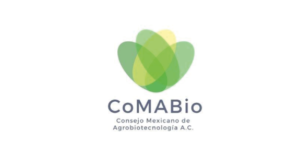





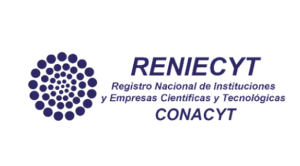

Phone
+52 55 4833 2159
infoventas@agribest.com.mx
Location
Montecito 38, Piso 37, Oficina 30, World Trade Center, Col. Nápoles Del. Benito Juárez, CDMX, C.P. 03810





